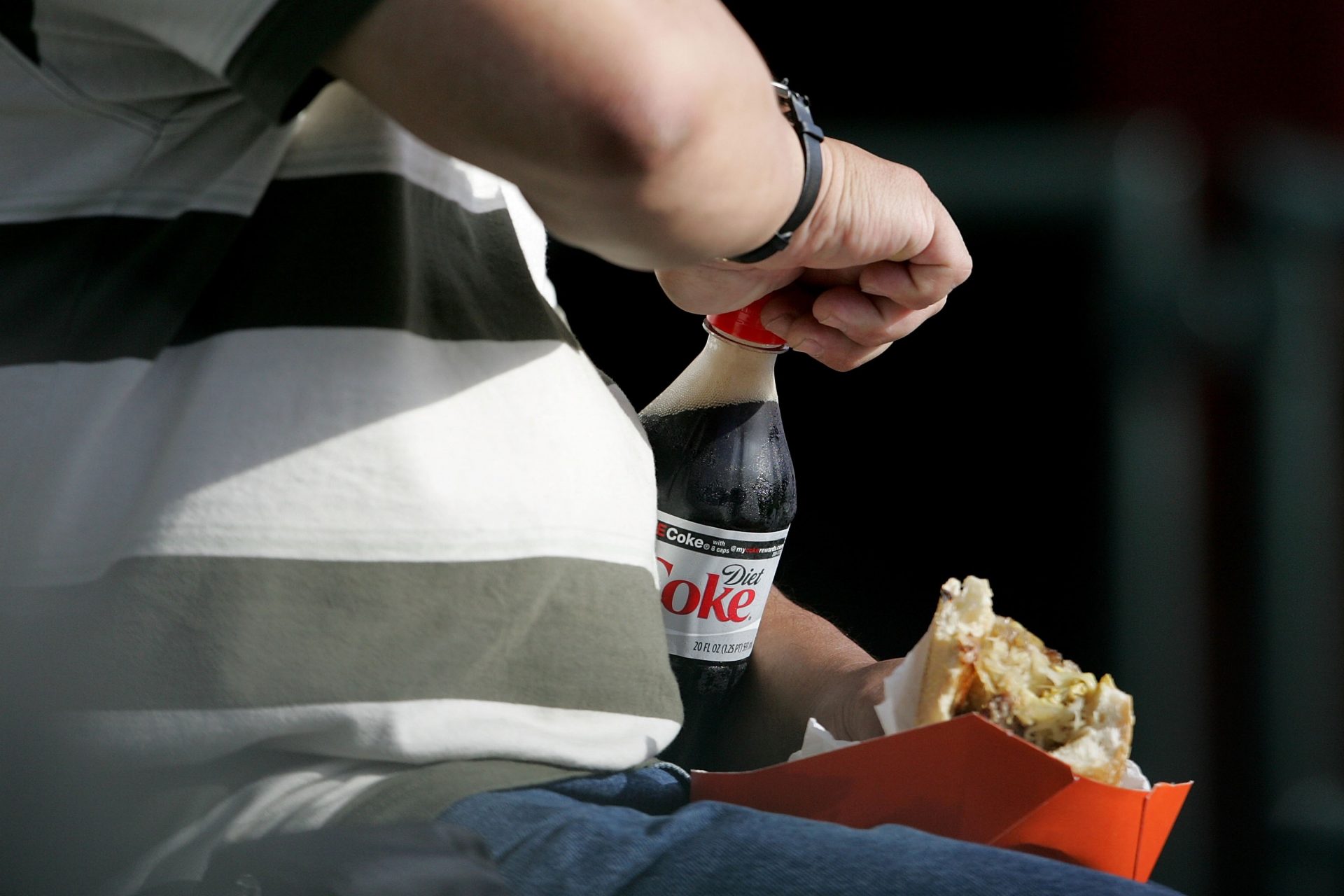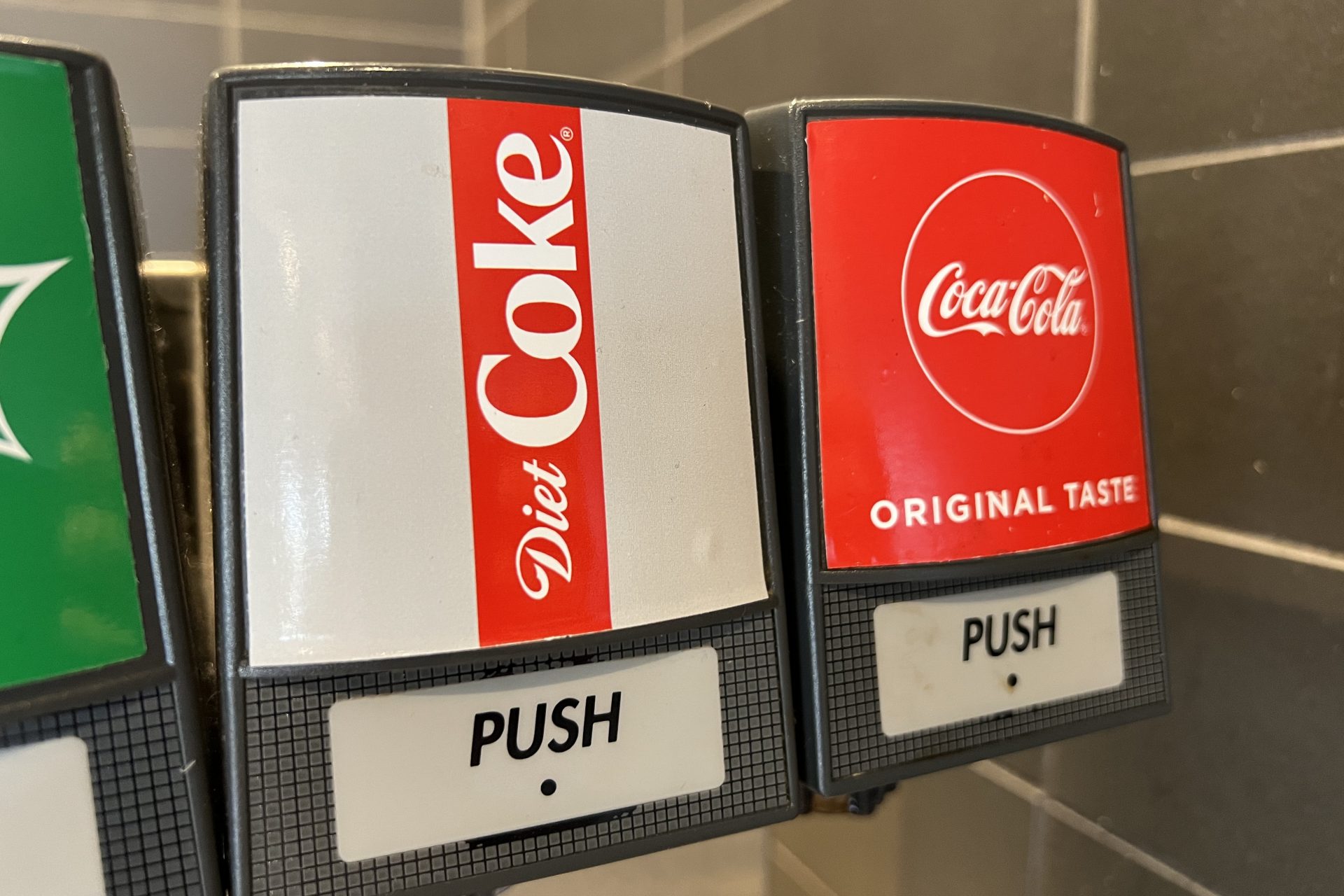Diet soda isn't as great for weight loss as you think
Many people who are struggling to lose weight often think that by choosing diet soda options, they are making a healthier choice and that consuming these drinks will only help them on their weight loss journey. Sadly, this couldn't be farther from the truth.
The World Health Organization (WHO) has issued new guidelines on non-sugar sweeteners, recommending against their use for weight control or reducing your risk of diseases such as diabetes or cardiovascular issues.
The global health body says this recommendation applies to all synthetic and naturally occurring sweeteners not classified as sugars. This includes everything from aspartame to stevia; sucralose to cyclamates.
The WHO found that long-term use of these sweeteners was linked to an increased risk of type 2 diabetes, cardiovascular diseases (CVDs), and mortality in prospective cohort studies conducted in adults.
The WHO guidelines recommend avoiding low-calorie sweeteners, but they do not recommend replacing them with sugar.
"This should not be interpreted as an indication that sugar intake has no relevance to weight control," nutrition researcher Ian Johnson told CNN.
While studies suggest that swapping sugar for sweeteners can cause some short-term weight loss, the WHO says that since weight loss must be maintained in the long term, low/no calorie sweeteners are not a good alternative to sugar.
A 10-year observational study cited by the WHO found that higher intakes of alternative sweeteners were linked to increased risks of type 2 diabetes, heart problems, and all-cause mortality. However, it wasn’t associated with an overall increase in cancer incidence.
The WHO cites three studies that found a 25% increased risk of preterm birth with higher sweetener intake during pregnancy.
Smaller studies also saw evidence that high sweetener use in pregnancy was linked to more asthma, allergies, and worse cognitive function in offspring, but this evidence is of very low certainty.
The WHO reasons that since these sweeteners aren't proving to be effective for weight loss and since they have no nutritional value and some risks, it’s best to avoid them.
The WHO says this information is critical because high body weights are escalating and threatening the health of billions.
In 2016, more than 1.9 billion adults were overweight and 600 million were obese. In 2017, high body mass was responsible for 4 million deaths.
"People need to consider other ways to reduce free sugars intake, such as consuming food with naturally occurring sugars, like fruit, or unsweetened food and beverages," says Francesco Branca, WHO Director for Nutrition and Food Safety. "People should reduce the sweetness of the diet altogether, starting early in life, to improve their health."
Dietitian and nutrition expert Stephanie McBurnett told the New York Times she wasn’t surprised by the WHO’s findings. That's because both sugar and sweeteners are "processed foods…If you look at what’s driving these chronic diseases like heart disease, diabetes, obesity, sugar is not always the only factor."
The recommendation to avoid these sweeteners doesn’t apply to diabetics, as they weren’t involved in the studies. The new WHO guidelines also don’t apply to non-food products like toothpaste. Stevia, for instance, has been shown to support dental health.
The industry association representing manufacturers of the sweeteners criticized the WHO’s advice. "Low/no calorie sweeteners…continue to be a helpful tool to manage obesity, diabetes, and dental diseases," the association said in a statement.
The statement continued, "They offer consumers an alternative to reduce sugar and calorie intake with the sweet taste they know and expect."
While the WHO findings were widely publicized, the organization says the guidelines could change with further research and could be influenced by complicated patterns of sweetener use. But for now, the best available evidence suggests it’s not enough to swap out real sugar for a calorie-free substitute to lose weight.
A recent study published in Nature found that the sweetener erythritol was linked to blood clotting, stroke, heart attack, and early death. At-risk people with high levels of the sweetener in their blood were twice as likely to experience a heart attack or stroke, the study found.
It’s hard to kick, but Lisa Drayer, a nutritionist and author of 'The Beauty Diet,' gave CNN some tips about how to embrace a diet that is not so sweet.
From bread to sauces to condiments, you may be consuming sweeteners without knowing it. Check the labels because some pasta sauces can contain up to three teaspoons of sugar per serving, and some low-fat salad dressings can contain more than two teaspoons per serving.
Shakespeare famously wrote that a rose by any other name would smell as sweet.. Well, same goes for sugar. Besides all the low-calorie sweeteners, sugar can be disguised under terms like: agave, corn sweetener, corn syrup, dextrose, evaporated cane juice, fructose, fruit juice concentrate, glucose, lactose, malt syrup, maltose, molasses, sucrose, and trehalose.
While they are tasty, sweetened drinks like energy drinks, sodas, sports drinks, and juices can be packed with unhealthy sugar or sweeteners. Beware of coffee drinks too, as some flavored lattes can have as much sugar or more than a can of soda. As an alternative, flavor water with fruit or herbal tea.
You don’t need to "reward yourself" with sweetness for getting through a savory meal. WHO expert Branca told CNN that for parents especially, it’s important to break that cycle with their young children.
The good news is that fruit is nutritious and delicious! If you want more than a straight up piece of fruit, Drayer recommends adding some pizzazz by using them for healthy desserts like cinnamon-baked apples or grilled peaches.
More for you
Top Stories







































